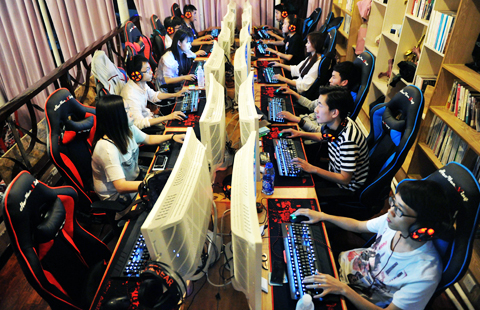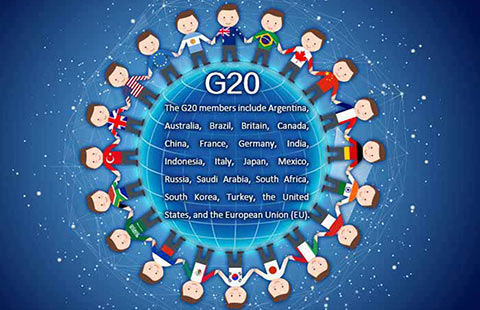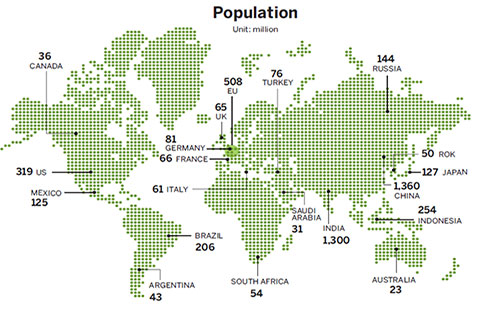Foreign students thriving as volunteers in Hangzhou
By Chen Mengwei (chinadaily.com.cn) Updated: 2016-09-02 18:33
Having spent eight years in China, 24-year-old South Korean student Calvin Song has often volunteered his services. Song said he didn't feel like an outsider anymore, especially during this time in Hangzhou for the G20 Leaders Summit.
"Seeing people from more than 20 countries coming to Hangzhou, I do not feel I'm a foreigner anymore. I feel like a local," Song said in flawless Mandarin, with just a slight hint of a Korean accent, while standing at an information center at Hangzhou East Railway Station on Friday afternoon.
"I can do exactly what my Chinese peers do. I tell people how to go somewhere or get something. Actually, many of the people I help are Chinese," Song said, nodding with a smile. "I work, dine and live with my Chinese fellows. I feel like we've become brothers in arms."
Just when he mentioned this, a Chinese middle-aged woman dressed in yellow walked up to Song and asked with a southern accent: "Where can I get a subway ticket?" The woman did not bother to slow down as she clearly thought Song was Chinese.
"You may walk down to the other side of the hall and go upstairs. There you will see it," Song said, pointing out the direction and replying without a pause.
"Thank you," said the woman, who looked satisfied and left.
Majoring in English at Zhejiang University, Song is one of a 26-member team of foreign volunteers selected by the university. Only one out of three applicants were selected, according to Lu Zhihui, a school official in charge of international volunteers. The group includes students from Yemen, Egypt, Republic of Korea, Indonesia, Russia, Pakistan, Kazakhstan, Peru and Australia, among others.
Hangzhou recruited more than 4,000 volunteers who have good command of English and other foreign languages, according to an official government report. The only 26 international volunteers have drawn wide public attention since they began working.
They started in early July and have served at various locations as receptionists, interpreters and tour guides. For instance, before working at the railway station, Song was also posted at West Lake, a luxury hotel and Wulin Square.
Till the end of the summit, Song and three of his peers, two Arabian and one Korean, will serve at the station from 9 am to 5 pm every day.
Adel Al-Kalei, 34, from Yemen's Taiz city, is Song's colleague at the station. He first came to China in 2002 and is able to speak Mandarin even more fluently than Song.
Al-Kalei is now pursuing his doctoral degree in surgery at Zhejiang University. This is the first time he has volunteered his services in China. He tried to get involved in the Beijing Olympics in 2008, but failed because his visa expired.
"I think our advantage is we are foreigners. We understand their culture. And perhaps just as important is that we understand various kinds of foreign accents better," Al-Kalei said as he smiled.
"Our disadvantage is that our Chinese is never good enough," he said, adding that he sometimes has trouble understanding Chinese dialects.
He then jokingly complained that Chinese visitors prefer to ask Song for help, as he looks more like a Chinese, although Al-Kalei said his spoken Chinese is "just as good".
- VR brings thrills, pressure to entertainment industry
- Hangzhou's police officers become web celebrities ahead of G20 summit
- China, Senegal to advance comprehensive strategic partnership
- China's green financing system begins to take shape
- G20 Summit key to global economic recovery: Former Australian Prime Minister
- China, Indonesia to deepen cooperation in trade, finance
- Samsung decides on sales stop, recall of Galaxy Note 7
- China's Xi injects vitality into G20 mechanism

















